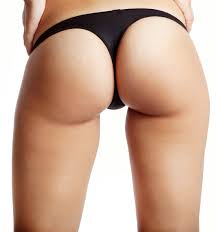butt
英 [bʌt]
美 [bʌt]
- n. 屁股;烟头;笑柄;靶垛;粗大的一端
- vt. 以头抵撞;碰撞
- n. (Butt)人名;(英)巴特;(俄、德、印、巴基)布特
使用频率:

记忆方法
butt 大酒桶。
bottle 酒瓶。
butler (管理酒窖的)男管家。
1. bottle => butler.
2. bottle => butt.
bottle 酒瓶。
butler (管理酒窖的)男管家。
1. bottle => butler.
2. bottle => butt.
中文词源
butt 用头顶撞
词源同beat, 击,打。引申义用头顶,用头撞。
英语词源
- butt
-
butt: There are no fewer than four distinct words butt in English. The oldest, ‘hit with the head’ [12], comes via Anglo-Norman buter from Old French boter. This can be traced back through Vulgar Latin *bottāre ‘thrust’ (source of English button) to a prehistoric Germanic *buttan. Old French boter produced a derivative boteret ‘thrusting’, whose use in the phrase ars boterez ‘thrusting arch’ was the basis of English buttress [13]. Butt ‘barrel’ [14] comes via Anglo-Norman but and Old French bot or bout from late Latin buttis ‘cask’ (a diminutive form of which was the basis of English bottle).
A derivative of the Anglo-Norman form was buterie ‘storeroom for casks of alcohol’, from which English gets buttery ‘food shop in a college’ [14]. Butt ‘target’ [14] probably comes from Old French but ‘goal, shooting target’, but the early English sense ‘mound on which a target is set up’ suggests association also with French butte ‘mound, knoll’ (which was independently borrowed into English in the 19th century as a term for the isolated steep-sided hills found in the Western states of the USA). Butt ‘thick end’ [15], as in ‘rifle butt’ and ‘cigarette butt’, appears to be related to other Germanic words in the same general semantic area, such as Low German butt ‘blunt’ and Middle Dutch bot ‘stumpy’, and may well come ultimately from the same base as produced buttock [13]. (The colloquial American sense of butt, ‘buttocks’, originated in the 15th century.) The verb abut [15] comes partly from Anglo- Latin abuttāre, a derivative of hutta ‘ridge or strip of land’, which may be related to English butt ‘thick end’, and partly from Old French aboter, a derivative of boter, from which English gets butt ‘hit with the head’.
=> button, buttress; bottle, butler, butte, début; buttock, abut - butt (n.1)
- "thick end," c. 1400, butte, which probably is related to Middle Dutch and Dutch bot, Low German butt "blunt, dull," Old Norse bauta (see beat (v.)). Or related somehow to Old English buttuc "end, small piece of land," and Old Norse butr "short." In sense of "human posterior" it is recorded from mid-15c. Meaning "remainder of a smoked cigarette" first recorded 1847.
- butt (n.2)
- "liquor barrel," late 14c., from Anglo-French but and Old French bot "barrel, wineskin" (14c., Modern French botte), from Late Latin buttis "cask" (see bottle (n.)). Cognate with Spanish and Portuguese bota, Italian botte. Usually a cask holding 108 to 140 gallons, or roughly two hogsheads, but the measure varied greatly.
- butt (n.3)
- "target of a joke," 1610s, originally "target for shooting practice" (mid-14c.), from Old French but "aim, goal, end, target (of an arrow, etc.)," 13c., which seems to be a fusion of Old French words for "end" (bout) and "aim, goal" (but), both ultimately from Germanic. The latter is from Frankish *but "stump, stock, block," or some other Germanic source (compare Old Norse butr "log of wood"), which would connect it with butt (n.1).
- butt (v.)
- "hit with the head," c. 1200, from Anglo-French buter, from Old French boter "to push, shove, knock; to thrust against," from Frankish or another Germanic source (compare Old Norse bauta, Low German boten "to strike, beat"), from Proto-Germanic *butan, from PIE root
权威例句
- 1. She would have liked to tell him to butt out.
- 她本想告诉他叫他别插手的。
- 2. He is still the butt of cruel jokes about his humble origins.
- 他仍然因出身低微而被人无情嘲笑。
- 3. He paused to stub out the butt of his cigar.
- 他停下来,踩灭了手中的烟头。
- 4. Frieda grinned, pinching him on the butt.
- 弗里达咧嘴笑了,捏了捏他的屁股。
- 5. Sorry, I don't mean to butt in.
- 对不起,我并不是想插嘴。
